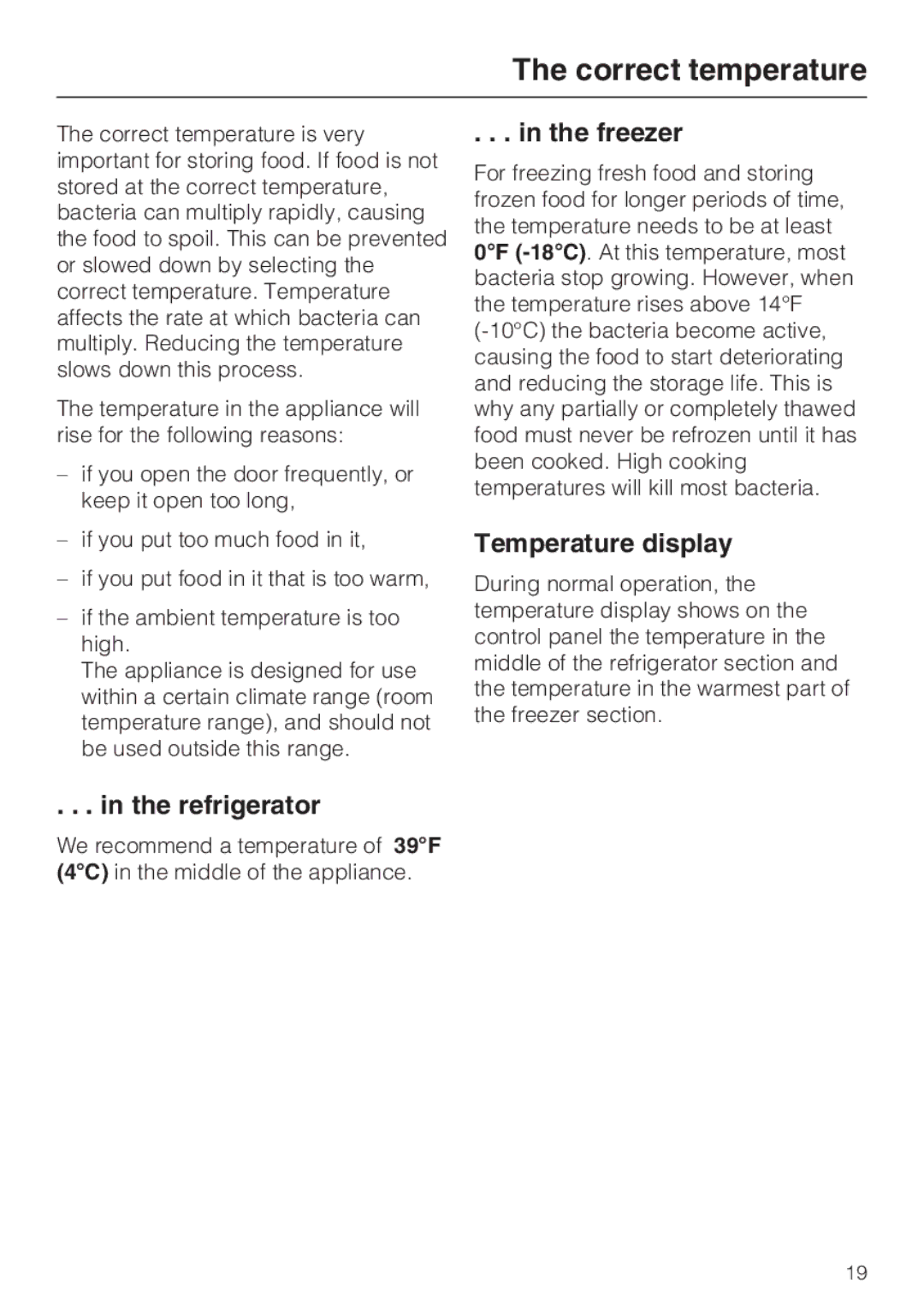The correct temperature
The correct temperature is very important for storing food. If food is not stored at the correct temperature, bacteria can multiply rapidly, causing the food to spoil. This can be prevented or slowed down by selecting the correct temperature. Temperature affects the rate at which bacteria can multiply. Reducing the temperature slows down this process.
The temperature in the appliance will rise for the following reasons:
–if you open the door frequently, or keep it open too long,
–if you put too much food in it,
–if you put food in it that is too warm,
–if the ambient temperature is too high.
The appliance is designed for use within a certain climate range (room temperature range), and should not be used outside this range.
. . . in the refrigerator
We recommend a temperature of 39°F (4°C) in the middle of the appliance.
. . . in the freezer
For freezing fresh food and storing frozen food for longer periods of time, the temperature needs to be at least 0°F
Temperature display
During normal operation, the temperature display shows on the control panel the temperature in the middle of the refrigerator section and the temperature in the warmest part of the freezer section.
19
